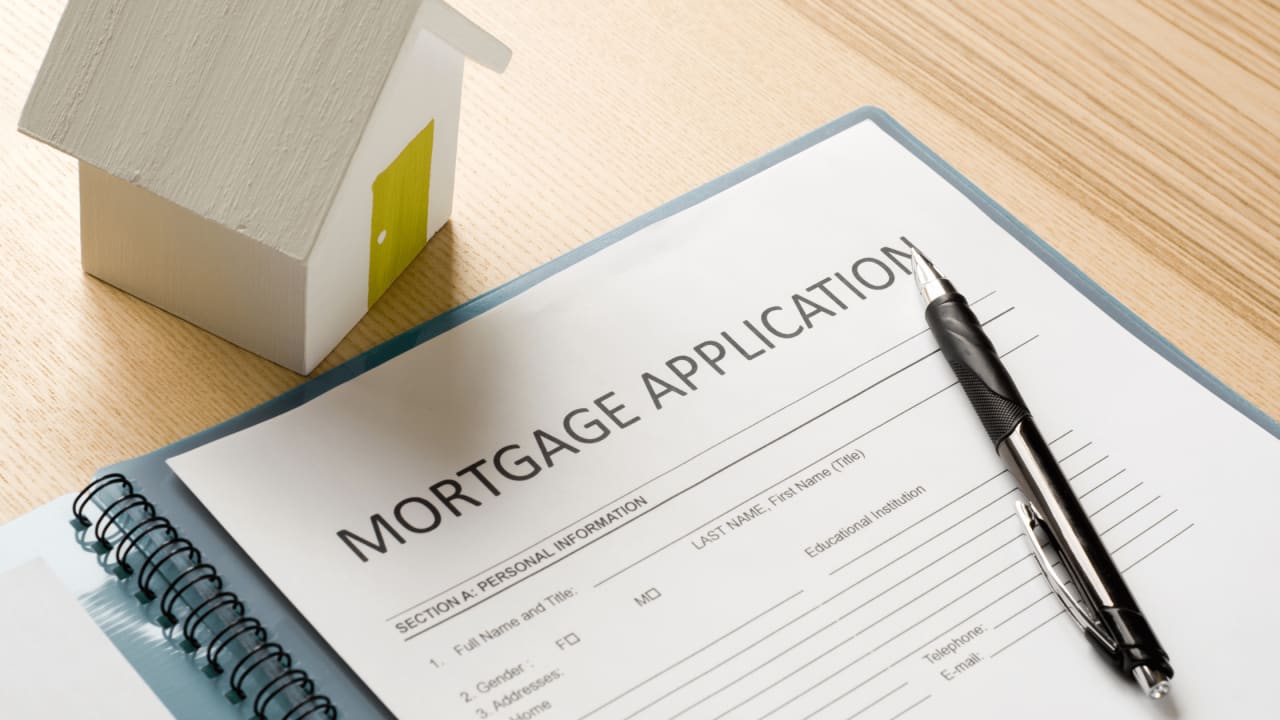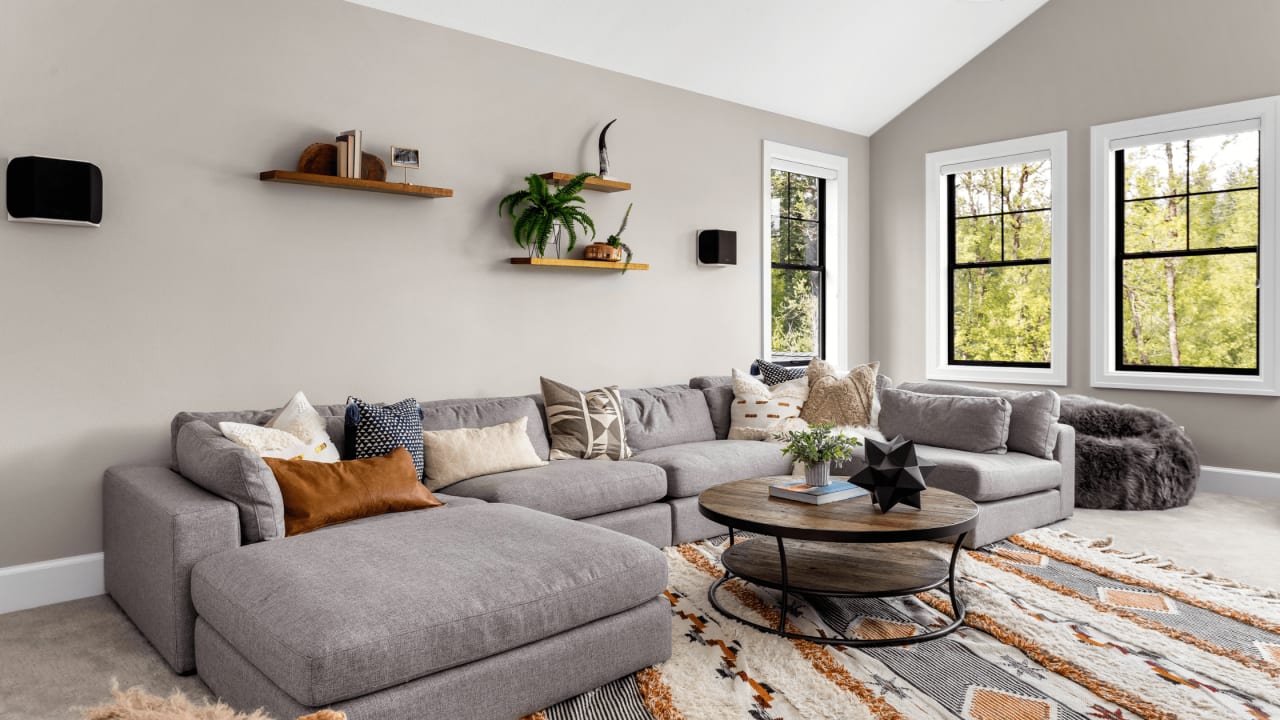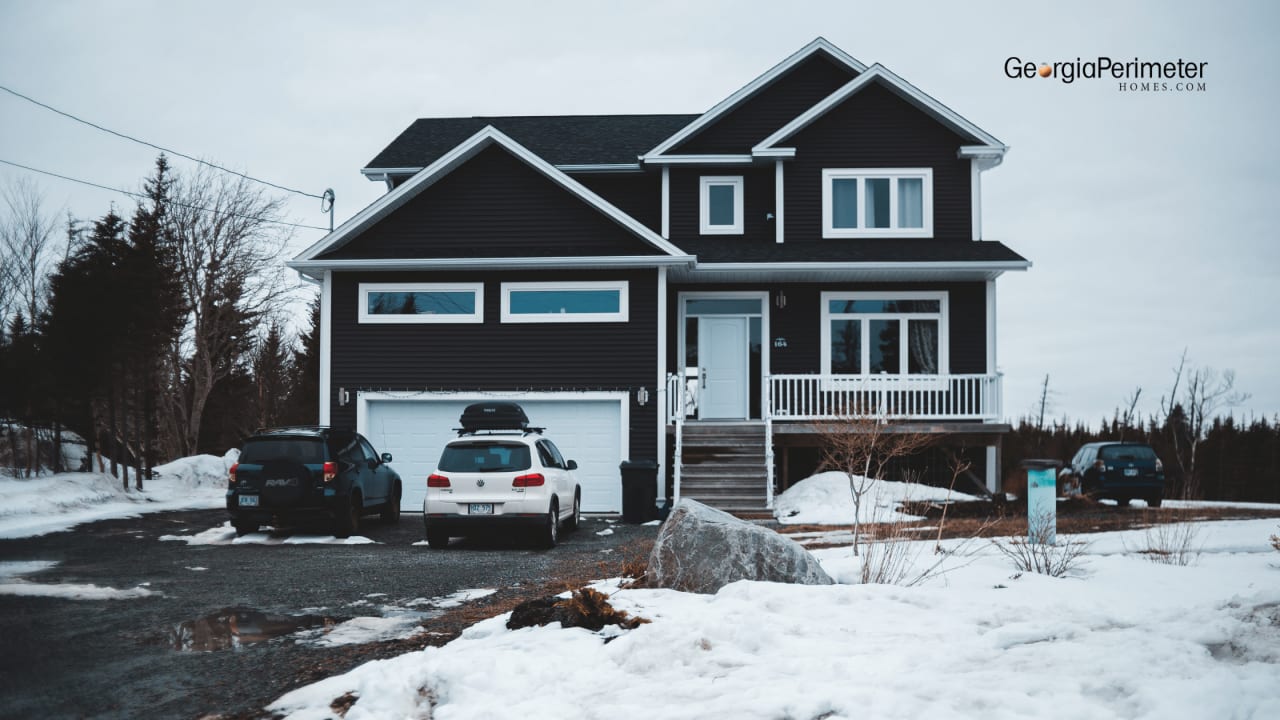Saving up enough to buy a home can feel impossible. But with a solid saving plan, anyone can put away enough for a down payment on the home of their dreams. In fact, you might be closer to having the amount you need for a down payment without even realizing it. And if not, there are several simple strategies you can use to make saving for a home a little easier.
Today, we’ll show you some tips and tricks you can use to save for a down payment on your future home.
How Much Should I Save Before Buying A House?
Having some cash on-hand is a necessity for those looking to buy a home, but how much cash is actually necessary? Some potential home buyers believe they’ll never be able to buy a home because they can’t afford a 20% down payment. The truth is that many lenders no longer require 20% down. So how much do you need for a down payment? It may be less than you’ve been led to believe.
3% Or Less
Depending on your credit score and income, you may be able to get a conventional loan with as little as 3% down. If you qualify for a U.S. Department of Agriculture (USDA) or Department of Veterans Affairs (VA) loan, you can even buy a home with no down payment at all. At this time, Rocket Mortgage® doesn’t offer USDA loans.
If you don’t qualify for a USDA or VA loan, you’re not completely out of luck. Some states aid first-time home buyers. As you begin saving for a house, research the down payment assistance programs available in your state and see if you meet the qualifications.
The 20% Myth
Why do so many people believe that they need 20% down to buy a home? The 20% down myth comes from the private mortgage insurance (PMI) rule that most lenders and mortgage investors have.
If you have less than 20% down at closing, you may need to pay for private mortgage insurance. This protects the lender and mortgage investor if you default on your loan. Though having a 20% down payment will save you money over time, it’s not a requirement to buy a home.
Home Affordability
If you’re just beginning your home buying journey, a great place to start is figuring out how much home you can afford. Once you take this into consideration, you’ll be able to get a realistic expectation of what your down payment could be.
If you’re thinking about buying soon, it’s a good idea to get your preapproval so you have a better idea of what you can afford. This will also help you have a better idea of how much you need to save for a down payment, since the down payment is typically determined by taking a percentage of the home’s purchase price.
Get approved to see what you can afford.
Rocket Mortgage® lets you do it all online.
How To Save Money For A House
Now that you know how much money you need to buy a home, it’s time to start saving. Whether you’re just starting to save or you already have some cash in the bank, you can use these strategies to start saving for your future down payment.
1. Build A Better Budget
The first step in the saving process is budgeting. If you don’t know where your money goes every month, it’s impossible to divert money to your down payment.
First, make sure you know how much money you’re bringing home each month, and include income from a spouse or partner if they’ll also be contributing to your down payment. Then, sit down with your bank statements and all your credit card payments. Look at where you’re spending the most money.
Note how much you spend on necessities like rent, student loan payments and utilities. Then consider how much you spend each month in nonessentials like entertainment, restaurants, etc. A budgeting app can help you automate this process if you’d like to avoid calculating your expenses yourself. If it all still seems overwhelming, enlisting the help of a financial advisor can help you get a better idea of what your budget should look like.
After you categorize your expenses, look for areas where you can cut back. Set a definite (yet realistic) budget for each category and stick to it. Make sure you budget a certain dollar amount to put away for your down payment each month. Consider your savings a non-optional expense.
2. Consider Downsizing
One fast way to save more money toward a down payment is downsizing. Downsizing is the process of reducing your expenses and living below your means while you save. When you downsize, you essentially practice minimalism by only spending money on the things you need. When you downsize, you only spend money on necessary expenses and divert the extra money into a savings account.
Moving into a smaller apartment, selling one of your family’s extra vehicles or moving to a more affordable area are all great ways to downsize. Many people practice minimalism while they save for a major purchase. You may find that you enjoy the simple life.
3. Reduce Or Cut Out A Bad Habit
Reducing or entirely cutting a single bad habit can help you put away hundreds of dollars a year. Consider quitting these unhealthy habits and divert the money to your down payment fund.
- Impulse buying: If you're prone to impulse shopping in person or online (who doesn't love getting deliveries?), you may consider cutting down on those purchases. Try to unsubscribe from marketing emails so you don't constantly see deals in your inbox. You'll save money and avoid piles of clutter around your home.
- Getting takeout: Takeout and fast food are great, there's no denying that. But it's not so easy on our wallets. Try cooking a few meals at home each week instead of ordering out.
4. Ask For A Raise
Do you have little money left over to save after you get paid? It might be time to ask for a raise. Use these tips to increase your chance of success.
- Time it right: Timing your salary conversation is the best way to set yourself up for success. Avoid asking your manager for a meeting during a hectic project or when time is at a premium. The best time to ask for a raise is during your annual performance review – but during the weeks after completing a big project is also an excellent choice.
- Come prepared: Never walk into a salary discussion unprepared. Gather specific performance data and results from the projects you’ve worked on. Lay out exactly how busy you’ve been and what you’ve been working on. It’ll help show your manager that they can’t afford to lose you.
- Be confident but grateful: Your attitude during your salary discussion meeting is just as important as what you say. Be confident in what you’re asking but also grateful and enthusiastic. Let your manager know that you envision yourself growing with your company and that you’re excited to take on more responsibilities.
5. See What Other Employment Options Are Out There
While it’s not always possible, switching jobs and landing a higher-paying salary can help you save money for your down payment.
Browse job posting sites and salary comparison websites to see if you earn as much money as people who work in similar roles. If you discover your salary is below average, consider using your findings as leverage to ask for a raise or inquire about a promotion at work.
If you aren’t in love with your job or you can’t get a raise, consider searching for higher-paying positions you qualify for.
6. Skip A Vacation
Exploring a new destination can be an amazing experience. Unfortunately, it’s also often an expensive one. The average family of four spends about $4,500 on vacation – that’s a big chunk of cash.
Consider storing that money for a down payment and enjoy a staycation in your city instead. Here are some ideas to get you started.
- Explore historical sites near you: You don’t need to book a flight to London or Milan to experience culture. The United States is full of rich, exciting history. Visit a museum, nature preserve or historical site near you for an injection of culture at a fraction of the price.
- Plan an at-home spa day: Dreaming of a trip to the spa? Replicate the experience on your own with an at-home facial kit, bubble bath and plenty of candles.
- Try a local cooking or art class: For many travelers, the joy of trying something new is one of the best parts of a vacation. Test out a new dish at a local cooking class or create a piece of artwork at your nearby recreational center for a low-cost learning experience.
7. Pick Up A Side Hustle
In the on-demand “gig economy,” it’s easier than ever to earn money on your own time with a lucrative side hustle. Here are a few ideas you can use to get started.
- Pick up some freelance work: Freelancing is a type of work that allows you to complete individual gigs for clients from the comfort of your home. Contracting out your skills as a writer, photographer, artist, musician and more can put money in your pocket on your own schedule.
- Drive for a ridesharing company: Rideshare companies like Uber and Lyft offer an ideal side hustle because they allow you to work as much or as little as you like. If you have a standard 9-to-5 job, you may be able to maximize your earnings by driving on weekends and at night. These are also the times when demands for rides and prices are at their highest, earning you more money per mile.
- Pet sit or walk: Everyone loves their furry friends, but not every pet owner has the time to walk and care for their dog. Pet sitting for business travelers and people going on vacation can be a lucrative and fun side hustle if you love animals.
- Test apps and websites: Companies need everyday users to test out apps and websites to make sure they’re user-friendly. Consider signing up with a testing company like Testbirds or UserTesting and earn money when you share your feedback.
8. Chop Down Your Debt
If you’re on a mission to buy a home, diverting your extra income toward your debt might seem counterintuitive. However, one of the first things lenders look for when they consider you as a mortgage candidate is your debt-to-income ratio (DTI).
The more debt you have, the less favorable you are as a candidate. This can mean that you’ll pay more in interest and have a higher down payment requirement.
Take some time to reduce your debt before you apply for a mortgage loan. Look at exactly how much you owe on your credit cards, student loans, personal loans and auto loans, and create a plan to tackle it.
9. Rent Out Your Spare Room Or Parking Space
Do you have an extra bedroom in your apartment? If you do, consider listing it on an online hospitality website like Airbnb. With Airbnb, you get to control who uses your space and when.
You can approve dates and guests ahead of time and only rent out your spare room when it’s convenient. You can even block out dates when your rental isn’t available if you have a friend or family member coming for a visit.
If you live in an urban area where parking is at a premium, consider renting out any of your assigned parking with an app like JustPark. JustPark lets you rent out your parking space just like you’d rent out your spare room on Airbnb. If you live in a heavily populated area, this can be an amazing source of extra cash on the weekends.
10. Ask For Help
There’s no shame in asking for help, especially when you’re saving up for something as large as a down payment on a home. More and more home buyers are crowdsourcing their down payments through websites and apps.
You may want to ask relatives and friends to skip physical gifts on holidays and special occasions in lieu of money. This is becoming more common practice at events like weddings and baby showers.
Keep in mind that there are special rules on how you can use gift money to pay for your down payment. Know your mortgage loan types and read about the rules surrounding gift money and down payments before you accept money for your new home’s down payment.
11. Automate Your Savings
If you’re the type of person who’s prone to impulse shopping, you may want to consider automating your savings. Here’s how it works: first, decide how much you want to save per month for your down payment.
Contact your bank and authorize an automatic withdrawal from your primary account into a separate savings account. Your bank will automatically take money out of your account each month and put it into a separate account.
This can be useful for people who have trouble managing their money. When you make your money less accessible, you may be less tempted to buy things you don’t need. Just remember to schedule your withdrawal on your payday or when you know you’ll have enough money. Overdraft fees can put a serious dent in your down payment fund.
The Bottom Line
If you want to save for a house, you should have a solid plan in place. But first, make sure you know how much you need for the down payment. Though many people believe they need a 20% down payment to buy a home, it’s actually possible to buy a house with as little as 3% down.
VA Loans, for instance, allow you to buy a home with $0 down. Research your loan options and make an estimate of how much money you’ll need before you start saving.
Whether you’ve already started saving for a house or you’re starting to save for the first time, there are plenty of ways you can save money for a down payment. Start by creating a budget for your household that includes saving a certain amount of money every month for your down payment.
You may also want to consider picking up a second job, moving into a more lucrative career or downsizing to save more. Reducing your debt, asking for help from friends and family members or renting out an extra bedroom can all also help you put away more money.
If you’ve been saving and are ready to take the next step, get approved with Rocket Mortgage to get the home buying process started.
Take the first step toward buying a house.
Get approved to see what you qualify for.

















































